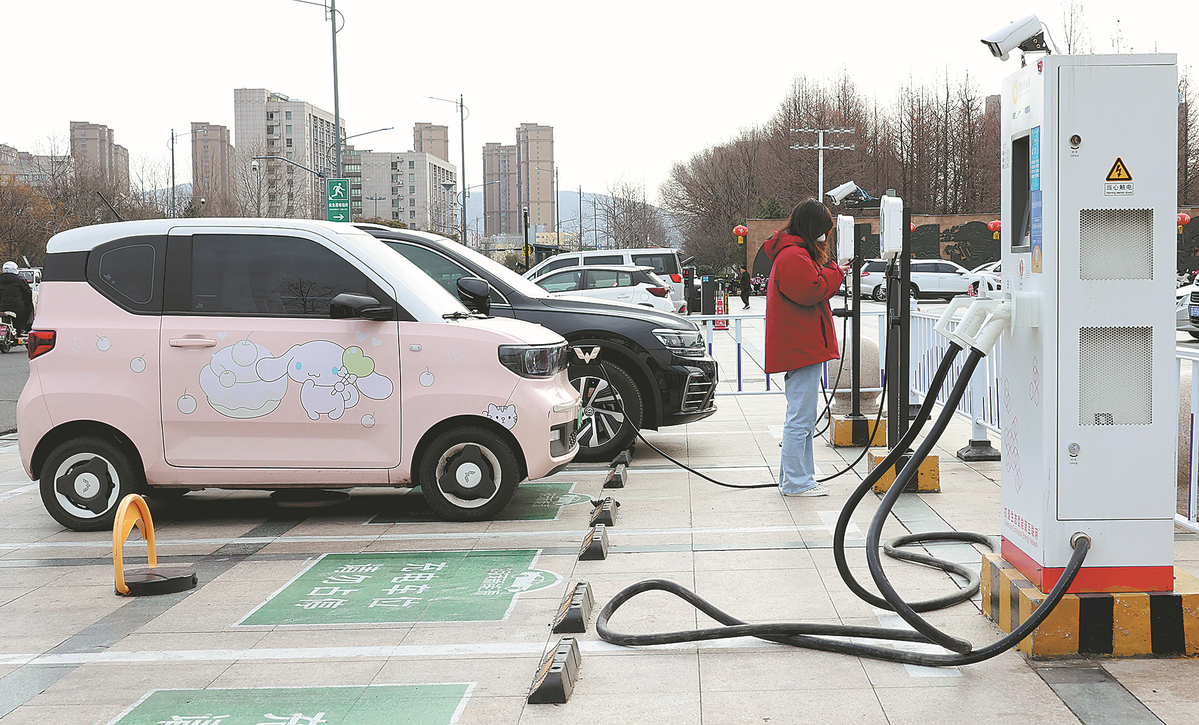NEV sales to rev after Jan speed bump

China's new energy vehicle market, despite a lackluster start, will maintain its rapid growth momentum thanks to rising demand and a cornucopia of new models, said experts and industry executives.
In January, sales of electric vehicles and plug-in hybrids fell 6.3 percent year-on-year in the country to 408,000 units, ending the 30-month growth span unbroken since July 2020, according to the China Association of Automobile Manufacturers.
The fall was primarily the result of NEV buyers' rush to place orders in late 2022 to be eligible for financial stimuli and the earlier-than-usual Spring Festival, which took place in January this year, said Chen Shihua, CAAM's deputy secretary-general.
China introduced subsidies for NEV buyers in 2009 and ended them on the last day of 2022 after several rounds of cuts since 2017.
"The fall in January was expected and there is no need to read too much into it. If you really want to make a comparison, it will be more appropriate to wait and compare the first quarter's performance," Chen said.
CAAM's estimate for NEV sales in China this year is 9 million units, up from 6.89 million in 2022.
Many automakers saw year-on-year sales declines in January. Leading electric car startup Nio sold 8,506 cars, down 11.87 percent year-on-year and 46.22 percent from December.
"Spring Festival this year fell in January, which means we had one less working week than usual," said the New York-listed startup.
Nio CEO Li Bin said the first quarter, if not the first half, will be tough, as some car buyers placed orders late last year for the subsidies that could reach over 12,600 yuan ($1,818).
But Li said he is confident of Nio's performance for the year, adding that it should outsell Toyota's premium Lexus models in China, which will require Nio to double its sales from 2022.
Another NEV startup Li Auto is even more ambitious. CEO Li Xiang said the company has set a goal to seize a 20 percent share of China's 300,000-500,000 yuan SUV segment, including both gasoline-powered and electric vehicles.
Li said the segment, which includes rivals like the Audi Q5 and BMW X3, has a volume of 1.4 million to 1.5 million units. That means Li Auto is aiming to sell 280,000 to 300,000 units in China this year, up from 130,000 in 2022.
Leading brands like BYD and Tesla did not see falls at all in January. BYD sold 151,000 units in the month, up 62.4 percent from a year earlier.
Tesla's Shanghai plant delivered 66,000 units in January, registering a 10.3 percent growth year-on-year, according to statistics from the China Passenger Car Association.
Analysts at Cinda Securities wrote in a research note that January would be the lowest point for the year and vehicle sales will rise again starting from February to April.
Up to 27 percent of car owners in China said their next vehicle will be an NEV, citing a better driving experience and lower costs as the top reasons, said Deloitte in an annual report in late February.
The findings were based on a survey of 1,012 respondents in late 2022. The figure was 17 percent in the previous year.
Along with rising demand come more choices. Deloitte said there were 280 electric models available in the Chinese market last year.
Zhang Yongwei, vice-president of China EV 100, a major think tank in the industry, said at least 100 EV models will hit the market in 2023 based on an in-house domestic survey.
Charging infrastructure helps encourage potential NEV buyers as well. China now boasts 5.2 million charging pillars, the most in the world, said the National Energy Administration.

